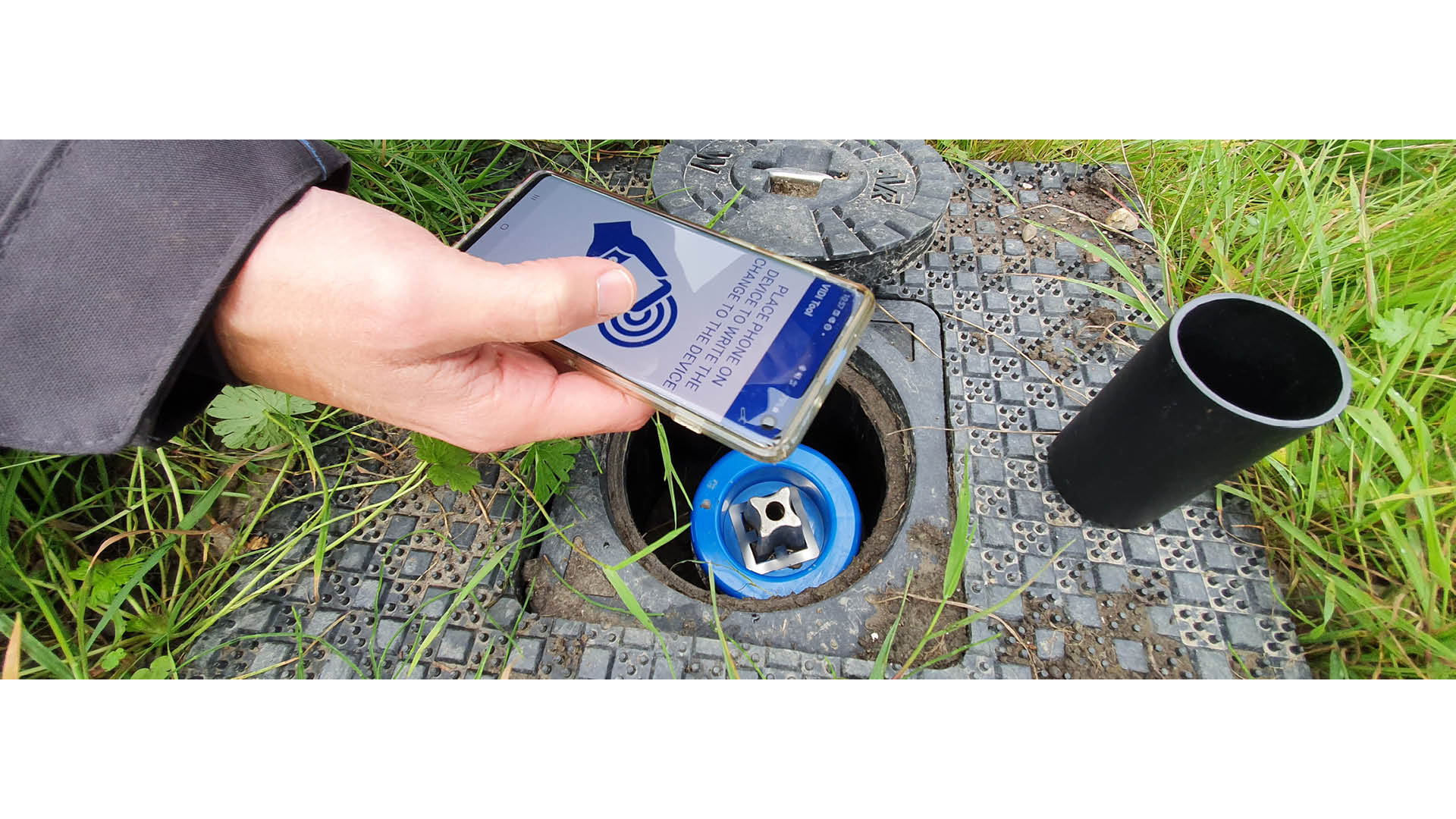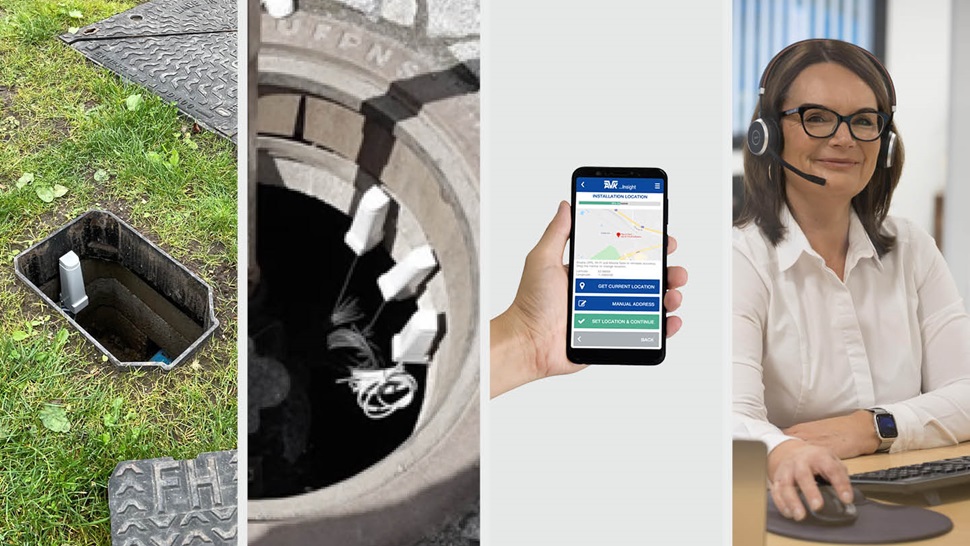
Smart Water Sensors
The Advantage of Smart Water sensors over Traditional Data Loggers 07-11-2023
Data in the 21st century has been described as the equivalent of oil in the 18th century. It’s a vast, still largely untapped asset with huge inherent value. The digital transformation of the worldwide economy has seen the advent of entire industries that never previously existed as well as having a profound impact on those long-established, such as advertising, finance, and even healthcare, to name just a few.
The water industry is no exception, of course, with customers now able to pay their bills through digital transactions, get up-to-date information from their provider through email, social media, and web searches, and check for and register problems online. Contractors can find and tender for framework agreements and procurement contracts through digital portals, engineers can submit updates and reports through handheld devices while still being on-site, and the innovations go on.
Digitisation of the Water Infrastructure
However, the water network itself – at hundreds of thousands of miles of pipe and hundreds of reservoirs – is one largely untapped data collection opportunity. Digitisation of the UK’s water infrastructure has been in discussion for decades, but only in the last few years has the concept of “smart networks” begun to be realised, with the advancement of battery and wireless data transfer technology. But there is still a long way to go to maximise on the potential.
Through the collection of a wide range of data, such as water pressure, flow rate, and even temperature, from key locations across the network, water companies can identify potential issues before they become catastrophic incidents (such as burst pipes). They can optimise the network, get more accurate information on usage in specific locations, better inform network upgrade and repair projects, and detect problems much faster, ensuring a better service for the end customer.
Choosing the right Water Sensor or Data Logger.
There are various devices on the market to help water companies monitor their networks, from the larger, more expensive data loggers through to smaller, more cost-effective IoT enabled sensors. There are advantages to both, of course, with the latter a more recent addition to the digitisation conversation thanks to the aforementioned advances in wireless data transfer technology, in particular. As the technology has improved, getting more compact, reliable, and cost effective to produce, IoT enabled sensor technology has become a potent method for remotely monitoring the water network.
The industry’s leading data logger devices have the ability to monitor a variety of network metrics and store that data on the device for retrieval later or as a backup if wireless transfer is disrupted, but this tends to come at a high cost. Whereas specialised sensors can be much quicker to install, reducing costs and allowing for a wider distribution of them across the network, therefore providing a greater amount of data.
This is epitomised by AVK UK’s Smart Water sensors. The battery-operated, wireless sensors are data-collection ready and come with a bespoke software platform for visualising network data and turning it into valuable, actionable insights. They include:
- VIDI Positioner for valves and hydrants
- VIDI Open/Close
- VIDI Flow, VIDI Pressure and VIDI Temperature
- VIDI Level

Some of the advantages of AVK UK’s Smart Water sensors over more traditional data loggers include:
1. Improved time to install
The specialised VIDI sensors can be installed on-site much faster – in some cases two to three times faster than other devices. This provides significant cost savings through reduced road closure times, for example, as well as freeing up engineers to install more devices during the course of network upgrades.
2. Greater cost-effectiveness
As well as the cost savings due to quicker install times, AVK UK’s specialised VIDI devices are dedicated to one function (for example, monitoring pressure) and are, therefore more cost-effective if companies know exactly what data they want to extract from a particular strategic location on the network. The devices also tend to have a longer battery life due to their energy efficient design and there is reduced ongoing expense for repair, maintenance, and eventual replacement, providing significant cost savings over a typical 10-year lifespan.
3. Free-to-use API
While most data loggers come with their own software, the AVK Smart Water software platform, VIDI, has a free-to-use API that allows customers to integrate the data coming from installed devices directly into their own systems. This has numerous benefits, such as reducing the number of apps/programmes staff need to learn to use, making the data more accessible, and generally being more versatile for customers to innovate with as they see fit.
4. First-class customer support
AVK UK Smart Water customers get second-to-none technical support from a dedicated account manager, such as Smart Water Specialist Anthony Whittam.
Anthony said:
“Where we support customers is in turning standard AVK assets into smart assets. That includes gate valves, hydrants, flow devices, pressure checks at critical points, water level monitoring, and more.
“Our Smart Water VIDI devices can give companies valuable data on the health of their water network so they can remotely monitor and diagnose problems, prioritise and manage maintenance issues, and optimise the entire network’s efficiency. Through the installation of numerous VIDI devices – which may not be possible with costly data loggers – companies can tap into a wealth of data to support their operations and ensure a better service for customers.
“We’re always happy to have a discussion with any water companies interested in our intelligent monitoring solutions, so I’d encourage them to give me a call.”
Contact Anthony to discuss AVK UK’s Smart Water products and services. Call him on the number shown or click the email icon to write to him directly.

